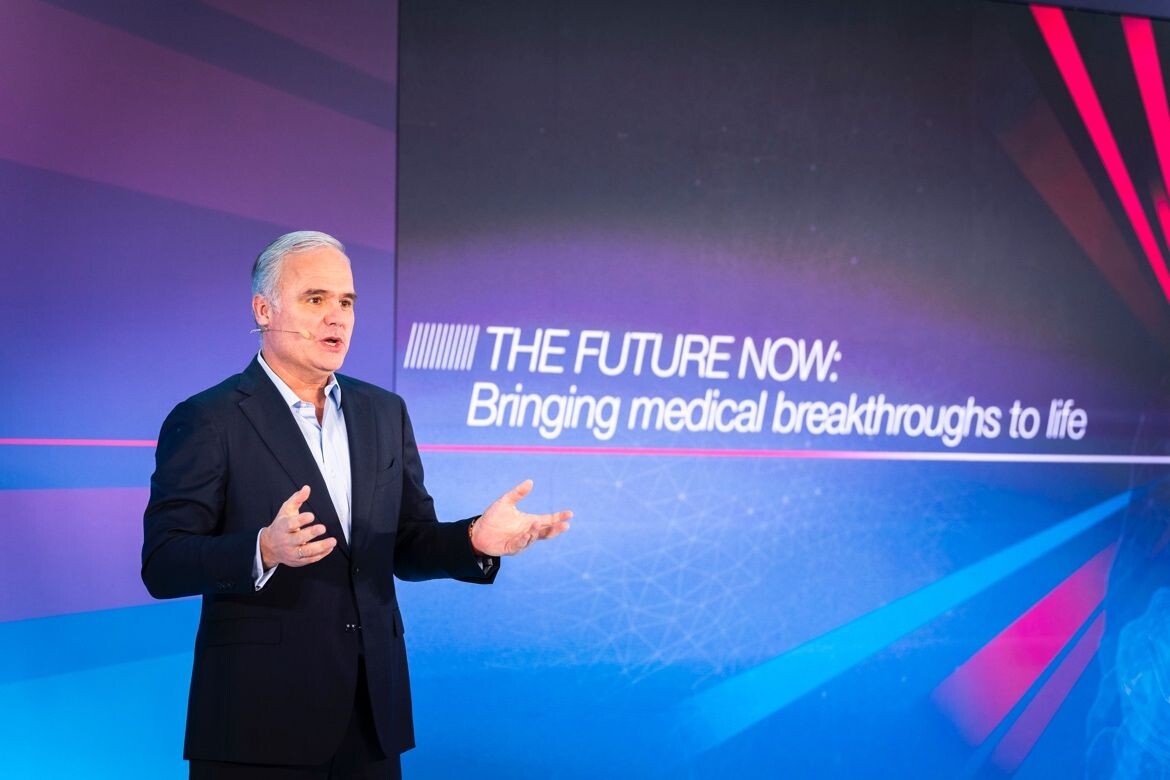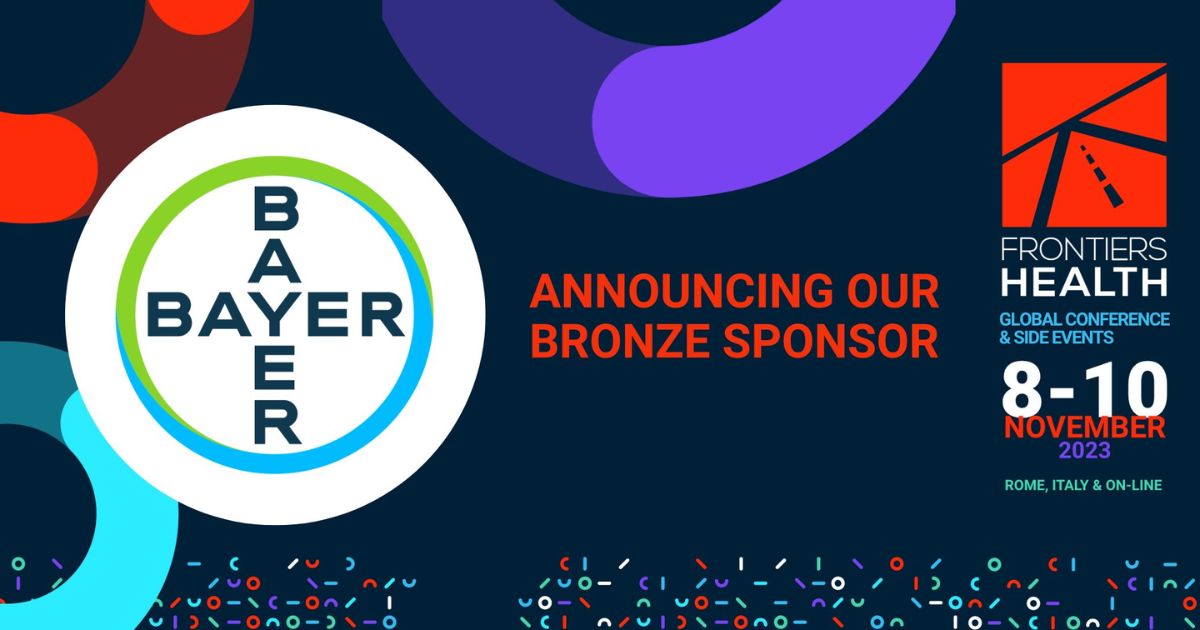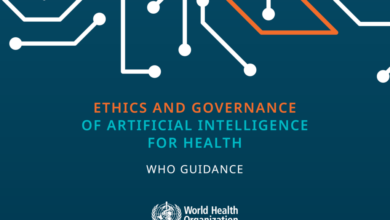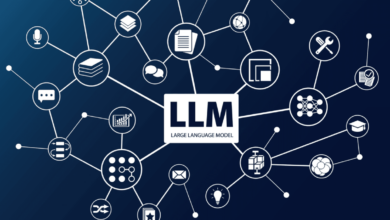
Bayer Launches Precision Health Unit
Bayer launches precision health unit – a bold move into the future of medicine! This isn’t just another corporate restructuring; it’s a strategic leap into personalized healthcare, leveraging cutting-edge technology and data analysis to revolutionize how we approach disease. Imagine a future where treatments are tailored to your unique genetic makeup, maximizing effectiveness and minimizing side effects. That’s the promise of precision health, and Bayer is diving headfirst into this exciting new frontier.
This new unit will focus on specific therapeutic areas, utilizing innovative technologies and collaborating with leading academic institutions and biotech firms. They’ll be harnessing the power of genomic data, AI, and advanced analytics to develop more targeted and effective therapies. The implications for patients are huge – faster diagnoses, more effective treatments, and ultimately, better health outcomes. This isn’t just about profits; it’s about improving lives.
Bayer’s Strategic Rationale
Bayer’s creation of a dedicated precision health unit represents a significant strategic shift, driven by the burgeoning opportunities in personalized medicine and the increasing demand for targeted therapies. This move reflects a proactive response to evolving healthcare trends and a desire to capitalize on the substantial growth potential within the precision health market.The core motivation behind this new unit is Bayer’s recognition of the limitations of traditional “one-size-fits-all” approaches to healthcare.
Precision health, with its focus on tailoring treatments to individual patients based on their unique genetic makeup, lifestyle, and environmental factors, promises more effective and efficient healthcare outcomes. This allows for more accurate diagnoses, personalized treatment plans, and ultimately, improved patient care.
Market Opportunities in Precision Health
Bayer aims to capture a significant share of the rapidly expanding precision health market. This market is characterized by high growth rates, driven by advancements in genomics, data analytics, and artificial intelligence. Specific opportunities include the development and commercialization of companion diagnostics, targeted therapies, and data-driven healthcare solutions. The increasing adoption of personalized medicine across various therapeutic areas, such as oncology, cardiology, and immunology, further fuels this market expansion.
For example, the growing use of genomic sequencing to guide cancer treatment represents a major driver of growth in the precision oncology segment, a market Bayer is keen to participate in.
Competitive Landscape and Bayer’s Strategy
Bayer’s strategy in precision health differs from some competitors in its integrated approach. While some companies focus solely on diagnostics or therapeutics, Bayer leverages its existing strengths in both areas, aiming to offer comprehensive solutions. Competitors such as Roche and Illumina are strong players in diagnostics and genomics, respectively. However, Bayer’s established presence in pharmaceuticals and crop science provides a unique advantage, allowing for potential synergies and cross-divisional collaborations that may differentiate its precision health offerings.
For instance, Bayer’s agricultural expertise could inform the development of precision nutrition solutions, impacting personalized dietary recommendations based on individual genetic predispositions.
Synergies with Existing Bayer Divisions
The new precision health unit is expected to create significant synergies with Bayer’s existing divisions. Its pharmaceutical division can contribute its expertise in drug development and clinical trials, while the consumer health division can leverage its understanding of patient needs and access to large consumer databases. Furthermore, the crop science division’s research in agricultural biotechnology could indirectly inform the development of precision nutrition solutions.
This integrated approach allows for a more holistic and comprehensive approach to precision health, potentially leading to more innovative and effective solutions. The cross-pollination of ideas and resources across these divisions should accelerate the development and market launch of innovative products and services within the precision health sector.
Precision Health Unit’s Focus Areas: Bayer Launches Precision Health Unit
Bayer’s new precision health unit represents a significant strategic shift, focusing on developing targeted therapies and diagnostics that leverage individual patient characteristics to improve treatment outcomes. This approach moves beyond traditional “one-size-fits-all” medicine and aims to deliver more effective and personalized healthcare solutions.This unit will prioritize therapeutic areas with significant unmet medical needs and where precision medicine approaches are likely to have the greatest impact.
The overarching goal is to translate cutting-edge scientific discoveries into tangible benefits for patients.
Therapeutic Area Prioritization
The unit will concentrate its efforts on oncology, cardiology, and ophthalmology, three areas where genetic and other individual factors significantly influence disease progression and treatment response. Oncology, for instance, will focus on developing companion diagnostics to identify patients most likely to benefit from specific cancer therapies, minimizing side effects and maximizing efficacy. In cardiology, the emphasis will be on identifying individuals at high risk of cardiovascular events through genomic analysis and developing personalized preventative strategies.
Ophthalmology will see a focus on genetic testing and targeted therapies for age-related macular degeneration and other vision-impairing conditions.
Innovative Technologies and Approaches
The unit will leverage several innovative technologies, including next-generation sequencing (NGS) for comprehensive genomic profiling, advanced imaging techniques such as PET/CT scans for improved disease detection and monitoring, and artificial intelligence (AI) for data analysis and drug discovery. NGS allows for the identification of specific genetic mutations driving disease, enabling the development of targeted therapies. AI will be crucial in analyzing large datasets of patient information to identify patterns and predict treatment responses.
Advanced imaging will provide higher-resolution images, allowing for earlier and more accurate diagnosis.
Research and Development in Precision Health
Research and development efforts will focus on developing novel biomarkers to predict disease risk and treatment response, designing clinical trials that incorporate genomic and other patient data to better assess treatment efficacy, and creating new targeted therapies based on a deep understanding of disease mechanisms at the molecular level. This includes developing companion diagnostics to guide treatment decisions and monitor response to therapy.
A significant investment will be made in building robust biobanks and data repositories to support ongoing research and development.
Collaborations with Academic Institutions and Biotech Companies
The unit plans to establish strategic collaborations with leading academic institutions and biotech companies to accelerate innovation and expand its capabilities. These partnerships will provide access to cutting-edge research, specialized expertise, and novel technologies. Examples might include collaborations with universities renowned for their cancer research programs to develop novel cancer therapies or partnerships with biotech companies specializing in AI-driven drug discovery.
Such collaborations will be critical to fostering an environment of open innovation and ensuring the rapid translation of scientific discoveries into clinical applications.
Impact on Patients and Healthcare Providers

Source: newswit.com
Bayer’s new precision health unit promises a paradigm shift in how we approach healthcare, moving from a one-size-fits-all model to a more personalized and effective approach. This shift will profoundly impact both patients and healthcare providers, leading to improved outcomes and more efficient workflows. The focus on individual genetic profiles, lifestyle factors, and environmental influences will allow for more accurate diagnoses, tailored treatments, and proactive preventative measures.The unit’s initiatives are designed to empower patients and streamline processes for healthcare professionals.
By leveraging advanced technologies and data analytics, the unit aims to provide more accurate and timely diagnoses, predict potential health risks, and develop individualized treatment plans. This approach minimizes unnecessary treatments and side effects, ultimately improving the overall patient experience and healthcare system efficiency.
Patient Benefits from Precision Health Initiatives
The potential benefits for patients are numerous and transformative. Precision medicine offers the possibility of earlier and more accurate diagnoses, leading to earlier interventions and improved treatment outcomes. For example, genetic testing can identify individuals at high risk for certain cancers, allowing for preventative measures like increased screening or prophylactic surgeries. Furthermore, tailored treatments, based on an individual’s genetic makeup and other factors, are expected to be more effective and have fewer side effects than traditional, generalized approaches.
Bayer’s new precision health unit is a big deal, focusing on personalized medicine and targeted treatments. This got me thinking about access to quality healthcare, especially in underserved areas, and how initiatives like those discussed in this article on Rural Hospitals Labor Delivery & are crucial. Ultimately, Bayer’s focus on precision health could help bridge gaps in care, even impacting the challenges faced by rural hospitals.
This personalized approach fosters greater patient engagement and empowerment, allowing individuals to actively participate in managing their own health.
Improved Healthcare Provider Workflows and Decision-Making
The precision health unit’s work will significantly enhance healthcare provider workflows and decision-making. By providing clinicians with comprehensive patient data, including genomic information, lifestyle factors, and medical history, the unit enables more informed diagnoses and treatment planning. This data-driven approach reduces guesswork and allows for the selection of the most effective therapies, minimizing trial-and-error approaches that can delay treatment and increase costs.
Moreover, the unit’s advanced analytics capabilities can identify patterns and trends in patient data, helping healthcare providers to predict potential health risks and proactively intervene, potentially preventing serious illnesses. The overall result is a more efficient and effective healthcare system.
Hypothetical Scenario Illustrating Patient Benefit
Imagine Sarah, a 45-year-old woman with a family history of breast cancer. Through genetic testing offered by Bayer’s precision health unit, Sarah learns she carries a BRCA1 gene mutation, significantly increasing her risk of developing breast cancer. Armed with this knowledge, Sarah and her doctor can develop a personalized plan, including increased mammogram screenings and potentially prophylactic surgery, to mitigate her risk.
This proactive approach, enabled by the precision health unit’s technology, allows Sarah to take control of her health and potentially avoid a devastating diagnosis later in life. This is a stark contrast to the traditional approach where Sarah might have only undergone standard screening, potentially missing the early detection window.
Comparison of Precision Health and Traditional Methods
| Feature | Precision Health Approach | Traditional Approach |
|---|---|---|
| Diagnosis | More accurate and timely, utilizing genomic and other individual data | Often relies on general symptoms and standard tests; may be delayed |
| Treatment | Tailored to individual patient characteristics, maximizing effectiveness and minimizing side effects | Generalized approach; may be less effective and have more side effects for some individuals |
| Prevention | Proactive risk assessment and preventative measures based on individual risk profiles | Reactive approach; focuses on treatment after illness develops |
| Cost-Effectiveness | Potential for long-term cost savings by preventing disease and improving treatment outcomes | Higher potential for long-term costs due to delayed diagnosis, ineffective treatments, and management of complications |
Technological and Data Aspects

Source: frontiers.health
Bayer’s new precision health unit leverages a sophisticated technological infrastructure and vast datasets to deliver personalized healthcare solutions. This involves the integration of diverse data types, advanced analytics, robust security measures, and a strong ethical framework guiding data usage. The success of this unit hinges on its ability to effectively manage and interpret this complex information while upholding the highest standards of patient privacy and data integrity.The unit will utilize a wide range of data sources to build comprehensive patient profiles.
Data Types Utilized
The foundation of Bayer’s precision health initiatives rests upon the integration of multiple data types. Genomic data, including DNA sequencing results and genetic variations, will be crucial for understanding individual predispositions to disease. Clinical data, encompassing electronic health records (EHRs), lab results, and imaging data, will provide insights into a patient’s current health status and treatment history. Real-world evidence (RWE) gathered from various sources, such as clinical trials and patient registries, will contribute to a more comprehensive understanding of treatment effectiveness in diverse populations.
Finally, lifestyle and environmental data, including diet, exercise habits, and exposure to environmental toxins, will provide context for individual risk profiles. The integration of these disparate data sources promises a holistic view of patient health, enabling more accurate diagnoses and personalized treatment plans.
Data Analytics and AI Capabilities
Bayer’s precision health unit employs advanced data analytics and artificial intelligence (AI) techniques to extract meaningful insights from the vast datasets it collects. Machine learning algorithms will be used to identify patterns and correlations within the data, enabling the prediction of disease risk, the personalization of treatment strategies, and the optimization of clinical trial design. For example, AI could analyze genomic data to identify patients most likely to respond to a specific drug, minimizing adverse effects and maximizing therapeutic benefits.
Predictive modeling could be used to anticipate potential health issues based on a patient’s genetic profile and lifestyle factors, allowing for proactive interventions. The unit’s AI capabilities will be continuously refined and improved through ongoing research and development, ensuring that it remains at the forefront of technological innovation.
Data Security and Patient Privacy
Protecting patient data is paramount. The unit will adhere to the strictest data security protocols, employing encryption, access controls, and regular security audits to prevent unauthorized access or data breaches. Data anonymization and de-identification techniques will be used to protect patient identities whenever possible. Compliance with relevant regulations, such as HIPAA in the United States and GDPR in Europe, will be strictly enforced.
Transparent data governance policies will be established to ensure accountability and build trust with patients and healthcare providers. These robust security measures will safeguard patient information and maintain the integrity of the data used for research and clinical applications.
Ethical Use of Patient Data
Bayer’s commitment to ethical data usage is central to its precision health strategy. The unit will operate under a clear ethical framework, ensuring that all data collection and analysis activities are conducted responsibly and transparently. Informed consent will be obtained from all patients before their data is used for research or clinical purposes. Data sharing will be governed by strict protocols, ensuring that patient privacy is protected at all times.
Bayer’s new precision health unit is a big deal, aiming to personalize healthcare through advanced data analysis. This initiative dovetails perfectly with the findings of a recent study on the widespread use of digital twins in healthcare, which you can read about here: study widespread digital twins healthcare. Understanding how digital twins can improve diagnostics and treatment is crucial for Bayer’s success in this rapidly evolving sector.
The potential for more effective, targeted therapies is huge.
The unit will prioritize the benefits to patients and society, while mitigating any potential risks associated with data usage. An independent ethics review board will oversee all data-related activities, ensuring adherence to the highest ethical standards. This commitment to ethical data handling is essential for building trust and fostering responsible innovation in precision health.
Financial Projections and Investment
Bayer’s launch of its precision health unit represents a significant investment, reflecting the company’s strategic commitment to leveraging data-driven approaches for improved healthcare outcomes. The financial projections for this unit are ambitious, aiming for substantial growth and a strong return on investment over the next decade. This requires a multi-faceted approach, encompassing substantial upfront investment and a carefully planned revenue generation strategy.
The initial investment in the precision health unit is estimated to be in the hundreds of millions of Euros, encompassing infrastructure development, technology acquisition, talent acquisition, and ongoing research and development. This includes significant capital expenditure on advanced data analytics platforms, AI-driven diagnostic tools, and the establishment of collaborative partnerships with leading research institutions and healthcare providers. This substantial investment underscores Bayer’s long-term vision for this unit and its belief in the transformative potential of precision medicine.
Projected Revenue Streams
The precision health unit’s revenue streams are anticipated to diversify over time. Initially, revenue will likely be driven by licensing agreements for proprietary diagnostic tools and algorithms developed by the unit. As the unit expands, revenue will increasingly be generated from the sale of personalized healthcare products and services tailored to specific patient populations. This includes the potential for collaborations with pharmaceutical companies to develop targeted therapies and advanced diagnostics.
A key revenue driver will be the sale of data-driven insights to healthcare providers, enabling them to optimize treatment strategies and improve patient outcomes. We anticipate that the revenue generated from this unit will grow exponentially in the coming years, driven by increased adoption of precision medicine approaches and the expansion of the unit’s product and service portfolio.
For example, we can model a scenario where revenue grows at a compounded annual growth rate (CAGR) of 25% over the next five years, reaching €500 million by year five. This growth is based on our market analysis, which indicates a significant increase in demand for precision medicine solutions.
Return on Investment (ROI)
The projected ROI for Bayer’s investment in the precision health unit is substantial. While precise figures are difficult to predict at this stage, we project a positive ROI within five to seven years, based on the anticipated revenue growth and cost optimization strategies. A successful outcome is predicated on the timely development and market acceptance of innovative products and services, coupled with the successful establishment of strategic partnerships.
Several successful biotech companies have demonstrated similar high ROI’s with investments in precision medicine, with market penetration rates exceeding expectations. For example, a company like Guardant Health has experienced rapid revenue growth by focusing on early cancer detection using liquid biopsies, showing a potential model for our own success. The long-term ROI is expected to be significantly higher, reflecting the transformative impact of precision medicine on healthcare.
Hypothetical Financial Model
A simplified hypothetical financial model illustrates the potential success of the precision health unit. Let’s assume an initial investment of €300 million. With a projected CAGR of 25% for the first five years, and a conservative profit margin of 20%, the cumulative profit after five years could be substantial. This is, of course, a simplified model, and actual results may vary depending on numerous factors, including market competition, regulatory approvals, and technological advancements.
Projected Revenue (Year 5): €500 million
Projected Profit Margin (Year 5): 20%
Projected Profit (Year 5): €100 million
Cumulative Profit (After 5 Years): (This would require a more detailed model incorporating yearly revenues and expenses)
The model underscores the potential for significant financial returns from this investment. However, a more comprehensive model, incorporating detailed revenue projections, expense budgets, and risk assessments, would be required for a complete financial evaluation.
Challenges and Risks
Bayer’s ambitious foray into precision health presents a compelling opportunity, but it’s crucial to acknowledge the significant challenges and risks involved. Success hinges not only on technological advancements and strategic partnerships but also on navigating a complex regulatory landscape and fiercely competitive market. Overcoming these hurdles will require proactive risk management and a robust, adaptable strategy.
Regulatory Hurdles and Ethical Considerations
The precision health field is heavily regulated, particularly concerning data privacy, patient consent, and the approval of novel diagnostic and therapeutic tools. Data security breaches, for example, could lead to significant financial penalties and reputational damage. Furthermore, ensuring informed consent from patients regarding the use of their genetic and health data is paramount. Misunderstandings or lack of transparency could lead to legal challenges and erode public trust.
The ethical implications of using AI in diagnostic tools also require careful consideration, ensuring fairness, accuracy, and avoidance of bias. For instance, algorithms trained on biased datasets could lead to inaccurate diagnoses or inappropriate treatment recommendations for certain demographic groups. Bayer must navigate these complex ethical considerations while ensuring compliance with evolving global regulations like GDPR and HIPAA.
Competitive Landscape and Market Threats
The precision health market is rapidly evolving and becoming increasingly crowded. Established pharmaceutical companies, tech giants, and innovative biotech startups are all vying for market share. Companies like Illumina, with their strong genomics capabilities, and large technology companies with significant data analytics expertise pose direct competitive threats. Maintaining a competitive edge will require continuous innovation, strategic partnerships, and a strong focus on differentiating Bayer’s offerings.
The unit needs to establish itself as a leader in specific niche areas within precision health, leveraging its existing strengths in drug development and its access to large datasets to gain a competitive advantage. Failure to do so could result in a loss of market share and diminished return on investment.
Potential Risks and Mitigation Strategies, Bayer launches precision health unit
The successful implementation of Bayer’s precision health unit faces several key risks. Effective mitigation strategies are essential to minimize these potential negative impacts.
Bayer’s new precision health unit is a big deal, focusing on personalized medicine and data-driven approaches. This move highlights the growing importance of AI in healthcare, a trend underscored by the recent news that Nuance integrated its generative AI scribe with Epic EHRs – check out the details here: nuance integrates generative ai scribe epic ehrs.
Ultimately, both initiatives point to a future where technology plays a crucial role in improving patient outcomes and streamlining healthcare processes. It’ll be interesting to see how Bayer leverages these advancements.
- Risk: Failure to secure necessary regulatory approvals for new products and services. Mitigation: Proactive engagement with regulatory bodies throughout the development process, robust clinical trial design, and meticulous documentation.
- Risk: Data breaches and cybersecurity vulnerabilities compromising patient data. Mitigation: Investment in robust cybersecurity infrastructure, employee training on data security protocols, and implementation of advanced data encryption techniques. Regular security audits are also vital.
- Risk: Intense competition from established players and emerging startups. Mitigation: Focus on developing innovative and differentiated products and services, strategic partnerships to access new technologies and markets, and a strong marketing and sales strategy to build brand awareness.
- Risk: High development costs and long timelines for bringing new products to market. Mitigation: Careful resource allocation, strategic partnerships to share development costs, and efficient project management techniques.
- Risk: Failure to attract and retain top talent in data science, bioinformatics, and related fields. Mitigation: Competitive compensation and benefits packages, a strong company culture focused on innovation and collaboration, and investment in employee development and training programs.
Long-Term Vision
Bayer’s precision health unit envisions a future where healthcare is personalized, proactive, and ultimately more effective. This isn’t just about treating disease; it’s about preventing it, intervening early, and tailoring treatments to individual needs based on a deep understanding of a patient’s unique genetic makeup, lifestyle, and environmental factors. The long-term goal is to significantly improve global health outcomes by leveraging cutting-edge technology and data-driven insights.The unit aspires to be a global leader in precision medicine, driving advancements in diagnostics, therapeutics, and preventative care.
This will involve not only developing innovative products but also fostering collaborations with researchers, healthcare providers, and technology companies to create a truly integrated ecosystem of precision health solutions. The ultimate aim is to empower individuals to take control of their health and improve their quality of life.
Impact on Global Health Outcomes
The precision health unit anticipates a substantial impact on global health outcomes. For example, early detection of diseases like cancer through advanced diagnostics could lead to significantly improved survival rates. Personalized therapies, tailored to an individual’s genetic profile, promise to increase treatment effectiveness and reduce side effects. Furthermore, the unit’s focus on preventative care, driven by predictive analytics and lifestyle interventions, could help reduce the incidence of chronic diseases, lowering the overall burden on healthcare systems worldwide.
Consider the potential impact on cardiovascular disease, a leading cause of death globally; precision medicine could dramatically improve risk prediction and treatment strategies, saving countless lives.
Advancements in Medical Science
The unit’s contributions to medical science will be multifaceted. It will drive innovation in areas such as genomics, proteomics, and bioinformatics, leading to a deeper understanding of disease mechanisms and the development of novel therapeutic targets. The unit’s focus on data analytics will also contribute to the creation of large-scale, integrated datasets that can be used to train advanced machine learning algorithms, further accelerating the pace of scientific discovery.
Imagine the potential for identifying new biomarkers for disease, accelerating drug development, and personalizing treatment plans with unprecedented accuracy. This will ultimately lead to faster development cycles for new medicines and therapies.
Visual Representation of Future Impact
Imagine a vibrant, interconnected network. At the center is a powerful data hub, pulsating with information from diverse sources – genomic data, electronic health records, wearable sensor data, and lifestyle information. From this hub, streams of information flow outwards, connecting to individual patients represented as nodes within the network. Each node glows with a unique color representing their personalized risk profile and treatment plan.
Lines connecting the nodes represent the seamless flow of information between patients, their doctors, and the precision health unit, enabling proactive interventions and personalized care. The overall network expands outwards, encompassing a global community benefiting from improved health outcomes, enhanced disease prevention, and more effective treatments. The brighter and more interconnected the network, the greater the impact on global health.
Epilogue

Source: pharmaphorum.com
Bayer’s launch of its precision health unit marks a significant shift in the pharmaceutical landscape. By embracing personalized medicine and investing heavily in data-driven technologies, Bayer is positioning itself at the forefront of a healthcare revolution. The potential benefits for patients are immense, promising more effective treatments and improved health outcomes. While challenges and risks exist, the long-term vision of this initiative holds the key to unlocking a future where healthcare is truly personalized and optimized for each individual.
It’s an exciting time to be watching this space!
FAQ Insights
What specific diseases will Bayer’s precision health unit initially target?
While specifics haven’t been fully released, it’s likely they’ll focus on areas where genomic data has shown strong potential for personalized treatment, such as certain cancers and complex genetic disorders.
How will Bayer ensure patient data privacy and security?
Bayer will likely adhere to strict data privacy regulations like GDPR and HIPAA, implementing robust security measures and transparent data handling policies to protect patient information.
What is the timeline for seeing tangible results from this new unit?
Significant breakthroughs usually take time in this field. We can expect to see initial research findings and potential collaborations within a few years, with tangible clinical applications potentially emerging further down the line.
How will this new unit impact Bayer’s existing drug development pipelines?
The new unit should synergistically enhance existing pipelines by providing a more targeted approach to drug discovery and development, potentially accelerating the process and improving success rates.





